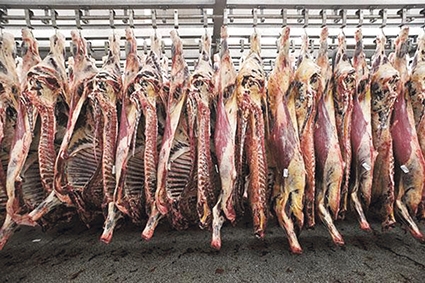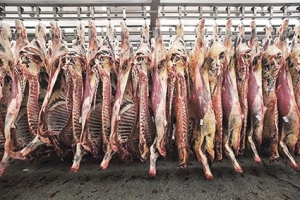Georgia’s Meat Market
The quality of meat available in Georgia is lacking compared to many western countries, with meat cuts predominantly being sold in bazaars and markets with no specific regulation. There are stores that sell processed meat products, but these too are not always up to standard. In short, there is a major gap to fill.
Earlier this year, the Food Security Service of Georgia (FSS) collected a number of food products from Tbilisi stores, and of the 20 items collected, 9 were found to contain horse and/or donkey meat. That is a staggering result and naturally unacceptable, however, not much is being done about it.
Seven companies were found to have been selling horse and/or donkey meat in products which were labelled as ‘containing beef/pork’ and so they were fined 1000 GEL (around $400). This is not the first time the FSS uncovered products containing horse and donkey meat that were falsely labeled, as, back in 2017, 12 companies were fined for similar reasons. It is quite possible that, should they conduct another search again, that they will find similar results.
Georgian legislation does not specifically forbid the sale of horse or donkey meat; however, if either is included in a food item, it must be indicated. Suppliers sometimes fail to do so however, because these kinds of meat are not popular in Georgia, with few consumers willing to buy products labelled as horse/donkey meat. The FSS has been conducting studies and tests like this since March 2017. Samples of ready-made dishes and other items are taken from food vendors and stores and an analysis is conducted in accredited laboratories. The agency has discovered several violations since it started operating.
Many say that fining these companies is insignificant and ineffective, and that the penalties given to companies for such violations are not severe enough and do not serve to prevent them from doing so again in the future. The local distribution and handling of meat is just not on standard and should be given more attention, especially with tourism on the rise. Georgian cuisine does not necessarily contain meat, with most dishes containing vegetables, cheese and egg, except for khinkali the famed meat dumplings.
The meat market is growing, slowly, and does need improvements. Georgia is a major exporter of both cattle and sheep, yet it still imports over 20% of its meat. The consumption of meat in Georgia takes place less than four days after the actual slaughtering of animals, with no time made to mature the meat, often leaving the meat in a very tough state. In the West, the tenderness of meat plays a big role in the quality, but n Georgia it is not regulated in the same way. In bazaars and markets, the animals are slaughtered and sold almost the same day and then consumed. Georgia does not provide for matured meats in general, except for companies such as Blauenstein Georgia.
Blauenstein Georgia has been operating in Racha since 2008, and started producing meat products in 2015, hoping to fill the gap left by other providers by offering matured and ripened meat closer to a western standard. They plan to invest more, and it is understandable why, due to the shortcomings of the country with regards to high-standard meat and the increasing demand from youth and tourists.
Meat production has quite a way to go in Georgia and small improvements won’t be enough; there is a massive gap that needs to be filled. The older generation does not mind the meat quality provided at bazaars and markets but, with the increasing westernization of Georgian standards, meats are becoming high on the list of demands for change.
By Shawn Wayne











